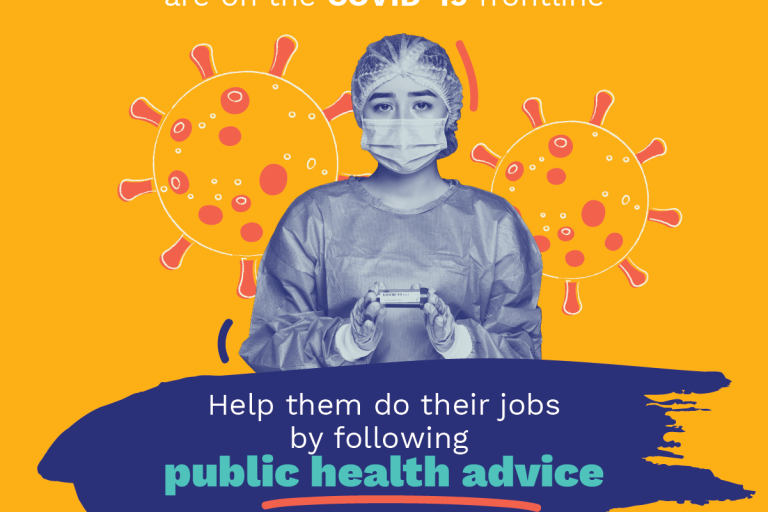International community marks World Health Day
On World Health Day, WMO joins the global community in paying tribute to the work of all health professionals who are at the forefront of the COVID-19 response. WMO and National Meteorological and Hydrological Services support the work of WHO and national health authorities, which are the source of official information and advice on containing the Coronavirus pandemic at a time of global uncertainty.

On World Health Day, WMO joins the global community in paying tribute to the work of all health professionals who are at the forefront of the COVID-19 response.
WMO and National Meteorological and Hydrological Services support the work of the World Health Organization (WHO) and national health authorities, which are the source of official information and advice on containing the Coronavirus pandemic at a time of global uncertainty.
WHO has issued a series of Frequently Asked Questions to dispel myths and fake news about the virus.
These include:
- Exposing yourself to the sun or to temperatures higher than 25C degrees DOES NOT prevent the coronavirus disease
- From the evidence so far, the COVID-19 virus can be transmitted in ALL AREAS, including areas with hot and humid weather.
- Cold weather and snow CANNOT kill the new coronavirus
WHO and WMO have a joint Office on Climate and Health office which seeks to accelerate access and application of weather and climate services for public health. Focus areas include climate change and extreme weather – in particular heatwaves – and air quality.
The global and local spreading of COVID-19 is strongly determined by trade, travel, personal behaviour and hygiene, policies of social distancing.
Several research teams are investigating the correlation between environmental variables such as temperature, humidity, and UV radiation, and the number of cases of COVID-19. However, it seems that climate and weather conditions such as humidity and temperature probably play a limited role in determining where and when COVID-19 occurs.
Environmental conditions, including extreme weather, are one of many factors that may exacerbate and introduce additional challenges for individuals, health workers, health facilities and communities to managing and control and management of COVID-19.
Existing disaster preparedness and management procedures for weather, climate and water-related hazards such as tropical cyclones, heatwaves and floods, will have to take into consideration public health recommendations for containment of COVID-19, as well as recognizing the increasing vulnerability of communities affected by the pandemic to extreme weather events due to economic-stresses, and reduced capacity of health systems and social support mechanisms.
The WMO community will therefore in the coming weeks and months do its upmost to support the global public health priorities whilst also trying to minimize the impact of COVID-19 on the essential 24/7 forecast and warning services from NMHSs










